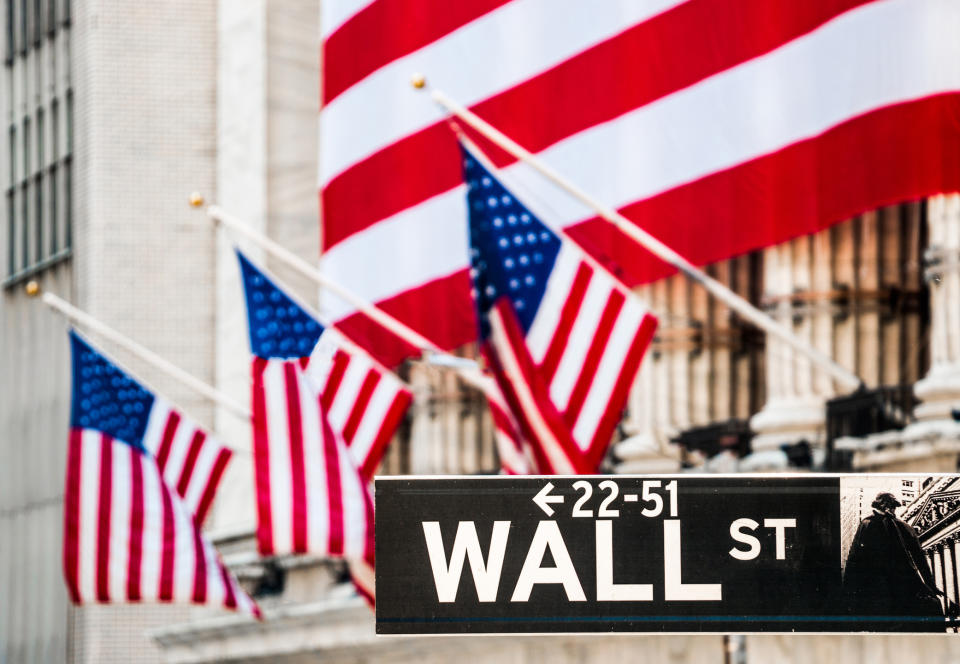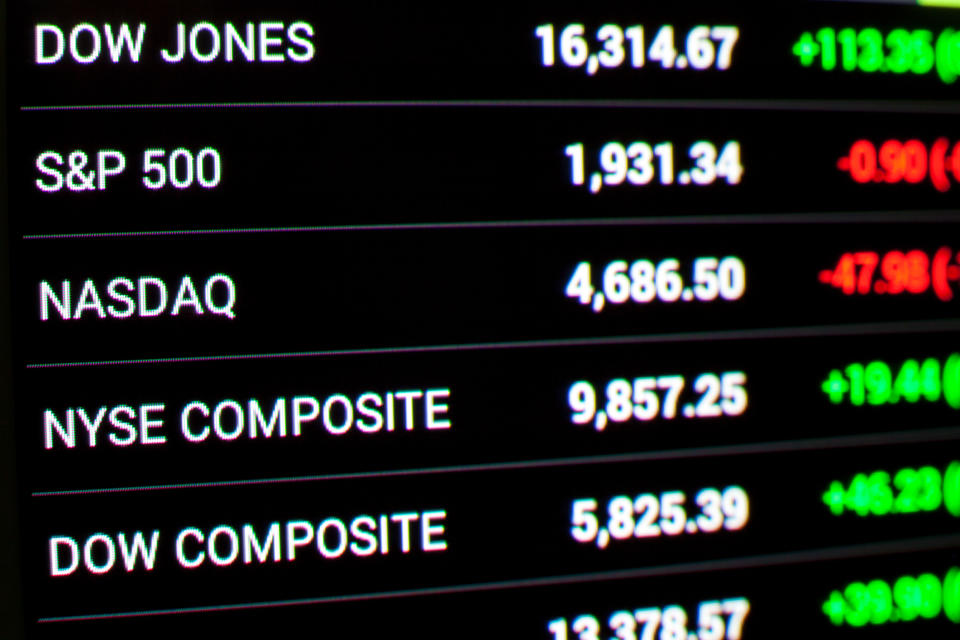Dear Wall Street: Dump the Dow Jones Industrial Average ASAP
On May 26, the Dow Jones Industrial Average (DJINDICES: ^DJI) will celebrate its 123rd "birthday" since creator Charles Dow introduced investors to the index. Initially consisting of 12 components -- none of which remains in the index, ever since General Electric was jettisoned last year -- the Dow today, and since Oct. 1, 1928, has contained 30 components.
To say the Dow Jones Industrial Average is rich with history would be an understatement. Having its components adjusted a little over 50 times in 122-plus years, the Dow has attempted to keep abreast of the United States' most game-changing businesses responsible for moving its economy. For decades, the Dow has been the benchmark by which the success of the U.S. economy and investors were measured.
Today, however, the Dow Jones Industrial Average is a farce, and the quicker Wall Street denounces its importance, the better off we'll be as investors.

Image source: Getty Images.
It's time for Wall Street to dump the Dow, once and for all
This past Monday, March 11, provided a firsthand example for why the Dow has lived on well past its prime.
On Monday, industrial giant and Dow component Boeing (NYSE: BA) tumbled as much as $57 per share during the early moments of trading, following word that a second Boeing 737 Max 8 had crashed within the past five months. This time, 157 passengers had lost their lives, and Wall Street was left to contemplate what sort of legal liability or future orders impact this might have on one of the world's largest producers of commercial planes.
The move lower also sent the Dow Jones Industrial Average into a mini-tailspin, with Boeing providing nearly a 387-point drag on the index. You see, the Dow is a price-weighted index, not a market cap-weighted index. That means the higher a company's share price, the more clout it has within the index. Since Boeing had closed last week at $422.54 a share, it had, at minimum, double the influence of every other component in the Index, save for UnitedHealth Group and its $237.29 share price.
To determine the value of the Dow Jones, the share prices of its 30 components are added together, and then divided by the Dow Divisor. Currently, this divisor is 0.14748071991788, and it means that every $1 in share price equates to about 6.781 Dow points. Thus, as of this past weekend, Boeing was responsible for 2,865.05 Dow points, or 11.26% of the entire index.

Image source: Getty Images.
Boeing's share price, which ended the day at almost $400 on the dot on Monday after recovering throughout the day, has more influence on the Dow than Pfizer, Cola-Cola, Cisco Systems, Intel, DowDuPont, Verizon, and Walgreens Boots Alliance... combined!
If I were to do a bit of cherry-picking, I could also say that Boeing has more influence over the Dow than Apple, Microsoft, and ExxonMobil combined. These three companies have an aggregate market cap of $2.05 trillion, which is more than nine times higher than Boeing's market cap, despite its having a greater influence over the Index.
But wait... there's more
I wish I could say the deficiencies with the Dow ended there, but they don't.
Because it's a price-weighted index, and even with the prospect of adjusting the Dow Divisor as needed, some of the largest companies in the world have absolutely no chance of ever being included, barring a very substantial stock split. Amazon.com, Google parent Alphabet, and Warren Buffett's Berkshire Hathaway, are the respective third, fourth, and fifth largest publicly traded companies in the United States. Unfortunately, their massive respective share prices of more than $1,670, around $1,175, and over $303,000, would exclude any chance of having them added to the Dow.
And I'm still not done. Because the Dow Jones Industrial Average caps at 30 components, diversity within the index is very limited. For instance, there are no utilities of any form in the Dow, nor are there any companies that have a real estate presence. It's not giving investors nearly as broad-based a view of the U.S. economy as you'd think.

Image source: Getty Images.
Benchmark this, not that
Rather than relying on an index that lost its importance a long time ago, I'd suggest ditching the Dow for the S&P 500 (SNPINDEX: ^GSPC). As the name implies, the S&P 500 contains approximately 500 of the largest companies in the U.S., and even a few that are based abroad. Every single sector, and pretty much every major industry you can think of, is represented in some fashion within the S&P 500. It definitely helps when there are 500 spots to divvy out instead of 30.
More importantly, the S&P 500 is a market cap-weighted index, meaning companies that are larger in size, not in share price, are given more importance to the overall weighting. If Apple or Microsoft has a good or bad day, the S&P 500 should feel it.
The Dow Jones Industrial Average had a good run, but it lost its importance a long time ago. Take the hint, Wall Street, and put this index out to pasture for good.
More From The Motley Fool
John Mackey, CEO of Whole Foods Market, an Amazon subsidiary, is a member of The Motley Fool's board of directors. Suzanne Frey, an executive at Alphabet, is a member of The Motley Fool's board of directors. Teresa Kersten, an employee of LinkedIn, a Microsoft subsidiary, is a member of The Motley Fool's board of directors. Sean Williams has no position in any of the stocks mentioned. The Motley Fool owns shares of and recommends Alphabet (A shares), Alphabet (C shares), Amazon, Apple, and Berkshire Hathaway (B shares). The Motley Fool owns shares of Microsoft and has the following options: long January 2020 $150 calls on Apple and short January 2020 $155 calls on Apple. The Motley Fool recommends UnitedHealth Group and Verizon Communications. The Motley Fool has a disclosure policy.

 Yahoo Finance
Yahoo Finance 